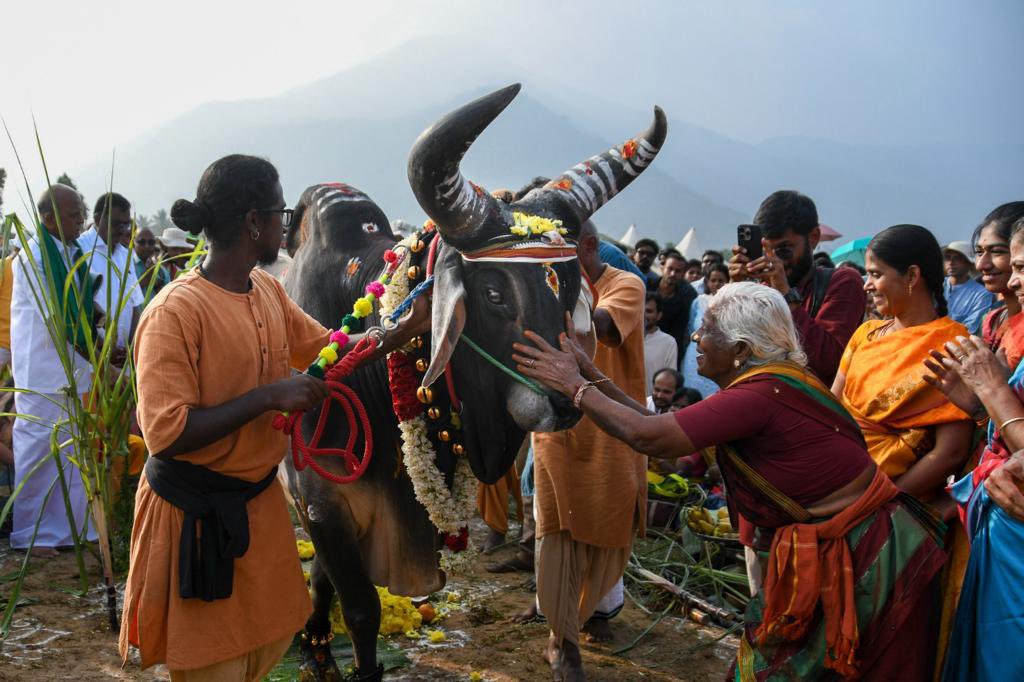Mattu Pongal, celebrated on the third day of the four-day Pongal festival, is a vibrant and meaningful event dedicated to honoring cattle. Observed primarily in Tamil Nadu, this day recognises the essential role of cows, bulls, and oxen in agriculture and rural livelihoods. This year, Mattu Pongal will be celebrated in January 16.
Why is Mattu Pongal celebrated?
Cattle play a vital role in farming, especially in plowing fields and transporting goods. For centuries, they have been considered a farmer’s best companion. Mattu Pongal is a day to thank these animals for their hard work and contributions. The word ‘Mattu’ means cattle, and this festival reflects the deep connection between humans and animals, emphasizing gratitude and respect for nature.
In Hindu mythology, Mattu Pongal is also associated with the legend of Lord Shiva and his bull, Nandi. According to folklore, Nandi accidentally delivered the wrong message to humans, leading to a life of hard work for both humans and cattle. Mattu Pongal is seen as a symbolic reminder of that story, reinforcing the bond between humans and cattle.
Rituals and traditions
Decorating cattle: On Mattu Pongal, cattle are bathed and adorned with colorful decorations. Their horns are painted, garlands of flowers are placed around their necks, and their foreheads are smeared with turmeric and kumkum.
Special meals for cattle: Farmers prepare a special feast for their cattle, which typically includes cooked rice, jaggery, bananas, and other ingredients. The animals are fed with love, care and gratitude.
Ritualistic worship: Farmers offer prayers to the Sun God, seeking blessings for the well-being of their cattle and the prosperity of their fields. Pongal, a sweet dish made of rice, milk, and jaggery, is prepared and shared among family and neighbors.
Jallikattu: In some parts of Tamil Nadu, Mattu Pongal is marked by the traditional bull-taming sport, Jallikattu. This ancient practice, while controversial, is considered a symbol of Tamil culture and heritage.
Mattu Pongal is more than just a festival; it is a celebration of coexistence. By honoring cattle, the festival emphasises the importance of gratitude and the interdependence between humans, animals, and nature. It’s a day to pause, reflect, and cherish the blessings that support life and livelihood.
